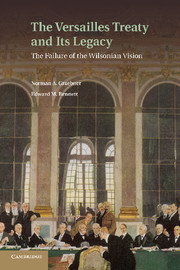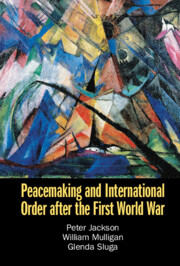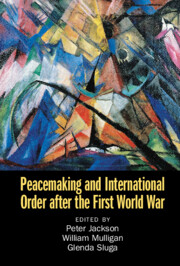The Versailles Treaty and its Legacy
This study, a realist interpretation of the long diplomatic record that produced the coming of World War II in 1939, is a critique of the Paris Peace Conference and reflects the judgment shared by many who left the Conference in 1919 in disgust amid predictions of future war. The critique is a rejection of the idea of collective security, which Woodrow Wilson and many others believed was a panacea, but which was also condemned as early as 1915. This book delivers a powerful lesson in treaty-making and rejects the supposition that treaties, once made, are unchangeable, whatever their faults.
- Realist interpretation of the long diplomatic record that produced the coming of World War II
- New interpretation of the war of 1939, emphasizing the failure of diplomacy
- Graebner is one of the great historians of the twentieth century
Reviews & endorsements
"It should be essential reading for anyone pursuing a career in diplomatic or national security affairs. Highly recommended." -Choice
Product details
June 2014Paperback
9781107647480
286 pages
234 × 156 × 16 mm
0.44kg
Available
Table of Contents
- 1. The international order on trial
- 2. The road to Paris
- 3. Versailles: a study in arrogance
- 4. The retreat to utopia
- 5. Manchuria and the triumph of non-recognition
- 6. The rise of Hitler
- 7. Challenge of the dictators
- 8. The illusive response
- 9. Munich: the continuing escape from reality
- 10. The road to Prague
- 11. The Soviet quest for collective security
- 12. The coming of war.








